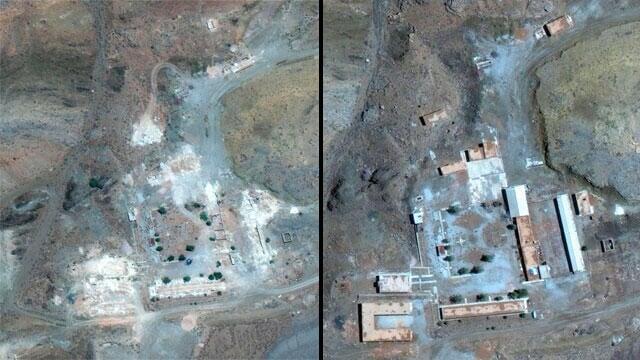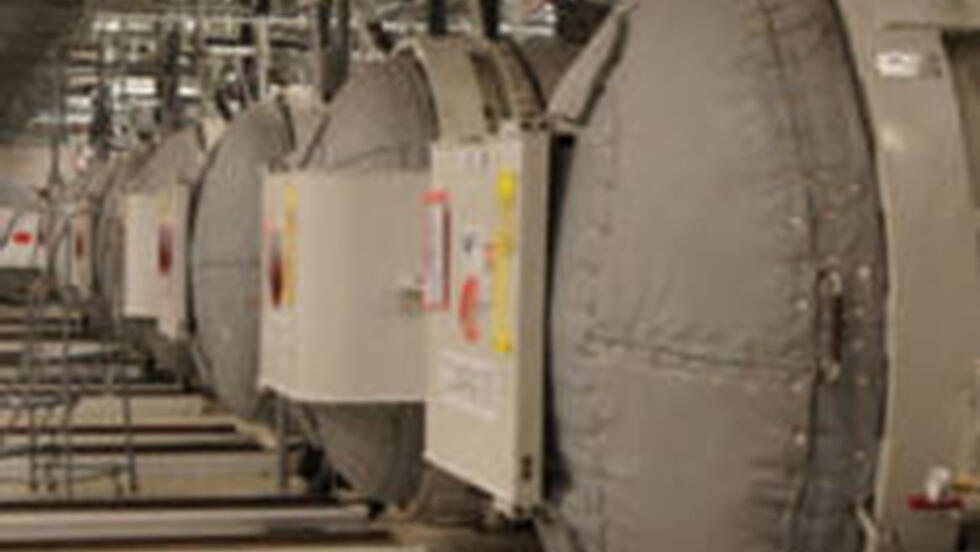Israel's Foreign Ministry on Thursday slammed the International Atomic Energy Agency (IAEA) for closing its investigation of an Iranian site where remnants of uranium had been detected.
Read More:
The site in Marivan, one of three Iran had not revealed, "is very disturbing," the ministry said in its official statement. "The explanations Iran had submitted on nuclear materials on the site, were not credible or technically possible. It continues to lie to the IAEA and deceive the international community," the statement read.
On Tuesday, Iran said that, following understandings reached with the IAEA, the probe into the Marivan site near the southern city of Abadan, where remnants of uranium were found, was closed. Israel uncovered the site in 2019 and Iran later destroyed large sections of it. According to the IAEA, the investigation ended after Iran supplied "explanations."
Iran reported that another investigation into uranium remnants in the underground Fordow nuclear site in the center of the country was also closed. The uranium found in Fordow last February was enriched to a level of 83.7% just short of the 90% military-grade enrichment needed to develop nuclear weapons.
This is the highest level of enrichment found by the nuclear watchdog inspectors to date. Tehran had claimed its centrifuges were oriented to enrich uranium to a level of no more than 60%. Still, the IAEA confirmed that the probe had ended.
"The IAEA's capitulation to political pressure from Iran is very disappointing," the Foreign Ministry said. "Especially due to the information on file pointing conclusively to Iran's blatant violation of the inspection agreements."
The ministry also claimed that closing the investigations would have dangerous repercussions and "send the message that there is no cost attached to the violations and Iran can continue deceiving the international community on its way to achieving its nuclear military program, in full. In addition, ending the probe in such a way is harmful to the credibility of the IAEA," the ministry said.
Prime Minister Benjamin Netanyahu said when the Marivan site was revealed by Israel, that Iran used it to develop nuclear weapons and destroyed part of its facility when Tehran realized the site would be exposed. Remnants of uranium were found and in June of last year, Iran claimed they were the result of sabotage perpetrated by a foreign country.
The IAEA asked Iran for access to the site in January 2020 and was allowed in only in August of that year. Despite action taken by Iran to clean it up, the IAEA still found traces of uranium. The IAEA said Iran had claimed there was no activity on the site between 1994 and 2008. Its inspectors then showed the Iranians satellite images proving otherwise, at which point the story had been amended to say no mining activity had taken place, which was the primary work done at the site, and that only security guards remained there. It is still unclear what explanations could have led the IAEA to shut down the investigation.
Another IAEA report that was published on Wednesday said that, in recent months, Iran had continued to violate the 2015 nuclear agreement and had significantly increased its stockpile of enriched uranium. The report said Iran had 23 times the amount permitted under the agreement and continues to enrich uranium over the 3.67% permitted under the 2015 JCPOA, or Joint Comprehensive Plan of Action.
Reuters reported that the IAEA report reveals the stockpile of uranium enriched to 60% is sufficient to make two nuclear bombs. According to the watchdog, some 42 kilograms ( 92.5 pounds) of uranium would be enough to be in possession of what the agency says is a "significant" amount, a term that means that, once it is stockpiled, the option of its use in a nuclear device cannot be ruled out. To develop a nuclear bomb, uranium must be enriched to 90% but that process takes a relatively short time to complete.
Although theoretically, 45 kilograms would be enough, in reality, over 55 kilograms ( 121 pounds) of enriched uranium to a level of 60% is needed because some material is lost in the enrichment process.
The conclusions from the IAEA report are that Iran does not yet possess a nuclear weapon. It would need not only the enriched uranium but also a nuclear warhead and the delivery mechanism, via ballistic or cruise missiles, or a plane that could carry a warhead and bomb to a distance of more than 1,000 kilometers (621 miles).
Defense Minister Yoav Gallant warned that Israel is facing growing dangers. "We may have to exercise our responsibility to defend Israel and especially the future of the Jewish People. These are heavy missions and the challenges are great. But Israel and the IDF as well as all the security agencies will know what to do, to ensure the security of Israel now and in the future," he said.




